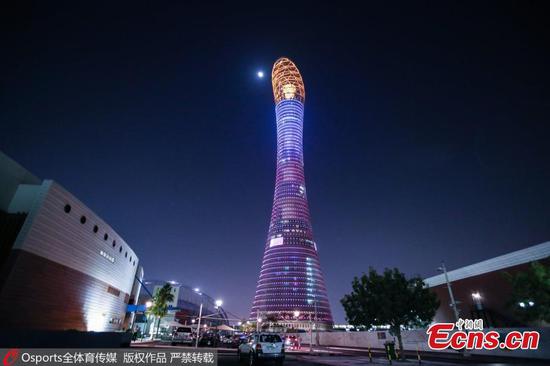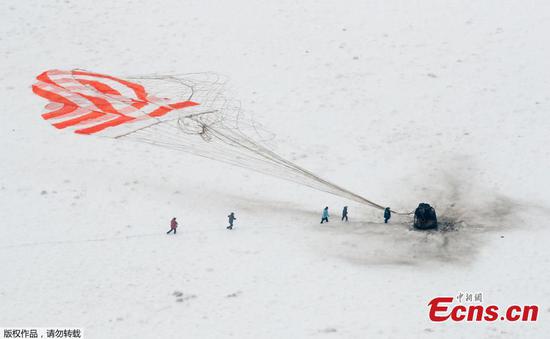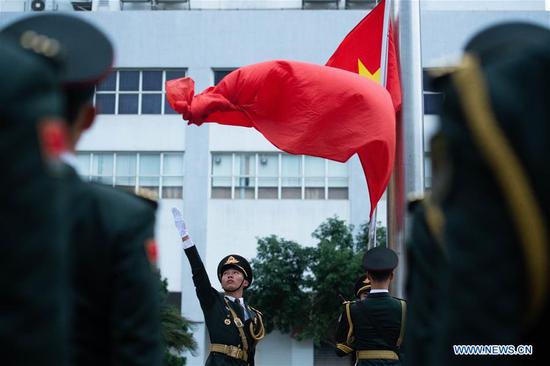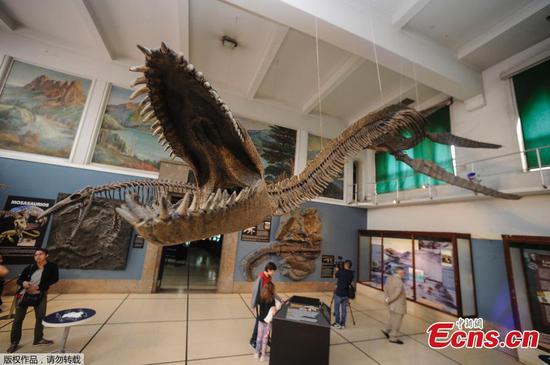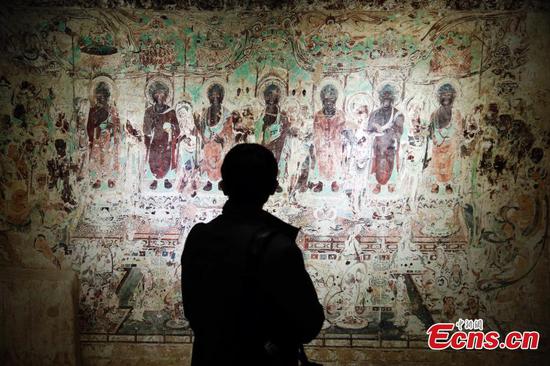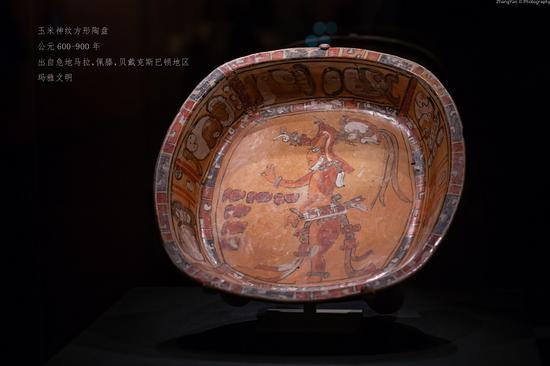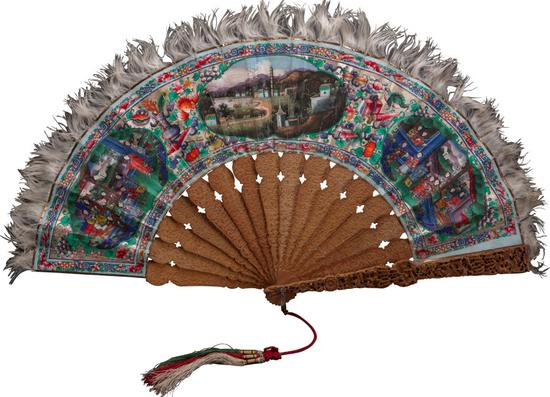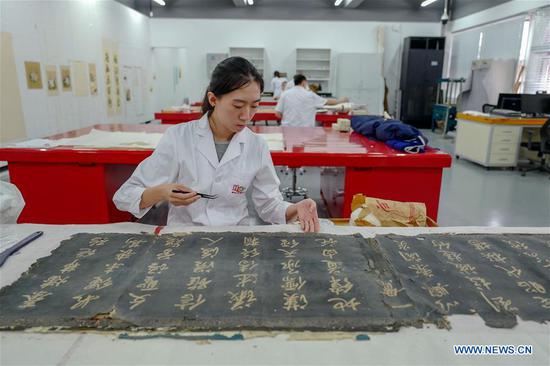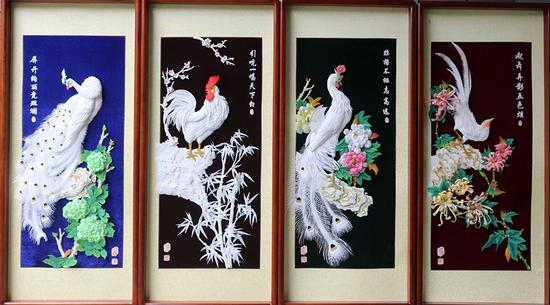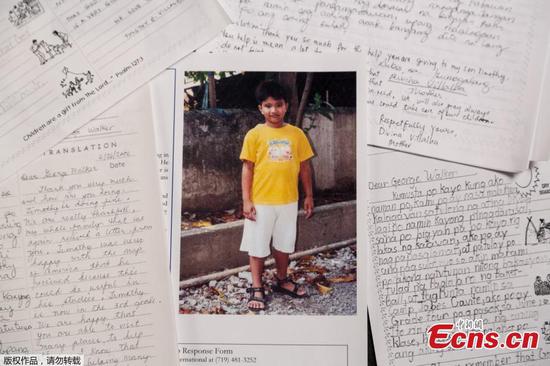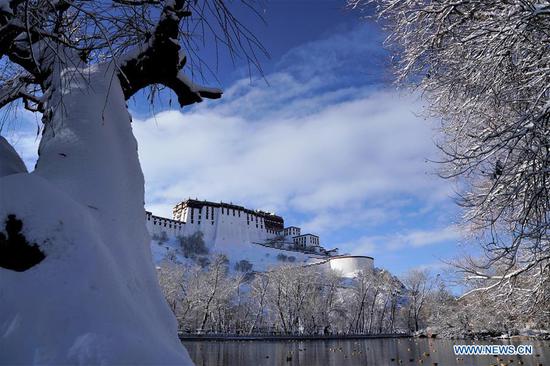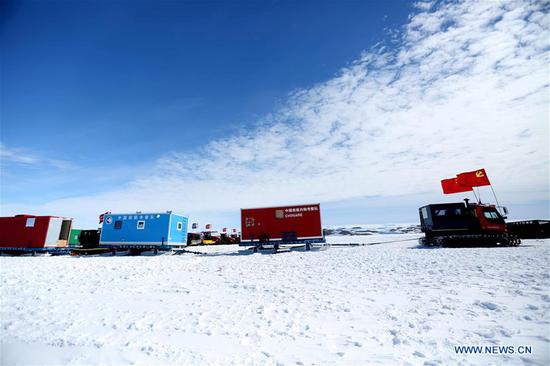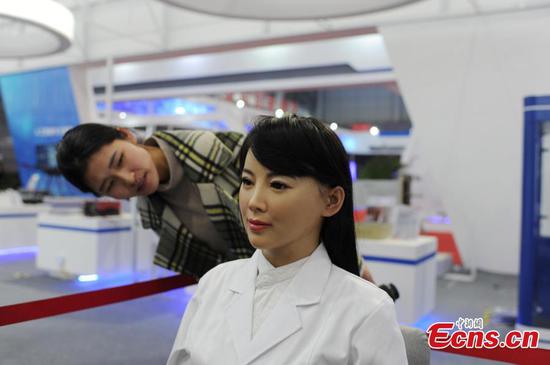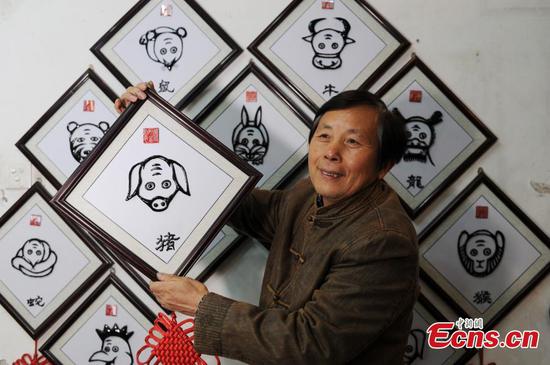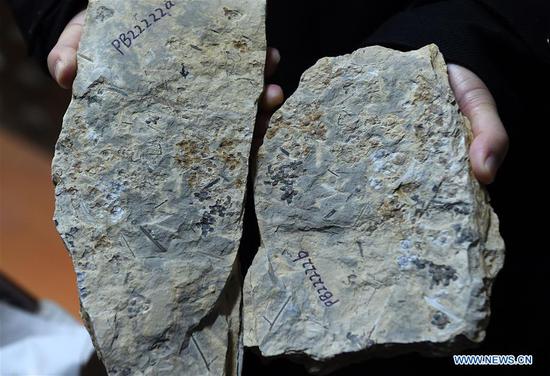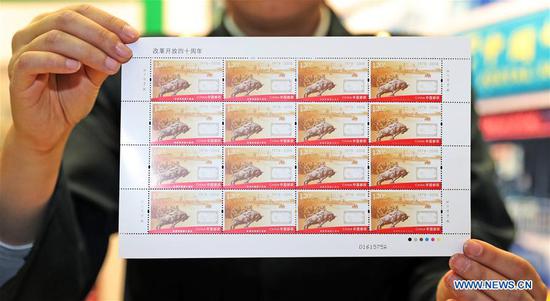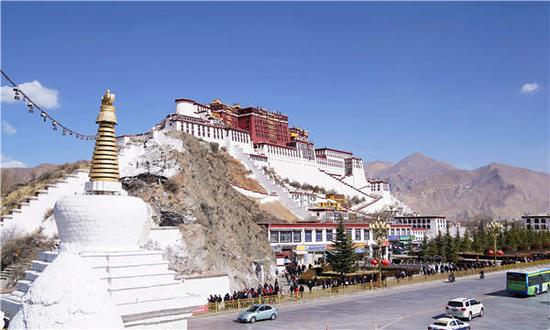
People wait in line in front of the Potala Palace in Lhasa. (Photo/Xinhua)
Beijing urged Washington on Thursday to stop interfering in China's internal affairs by using Tibet autonomous region-related issues, and warned against the implementation of a new act of the U.S. Congress.
Foreign Ministry spokeswoman Hua Chunying said that China resolutely opposes U.S. President Donald Trump's signing into law on Wednesday the Reciprocal Access to Tibet Act of 2018.
It violated basic rules of international relations and sent "severely wrong signals" to separatist forces advocating Tibetan independence, Hua said.
The law calls for the promotion of access for U.S. diplomats, other officials, journalists and others to Tibetan areas of China. If such access is not provided, then the U.S. may restrict Chinese officials deemed responsible for excluding outsiders' entry into Tibet to enter the U.S..
"The act will harm Sino-U.S. ties, bilateral communication and cooperation in major areas if it is implemented," Hua said at a daily news conference in Beijing.
The U.S. should recognize the high sensitivity of issues involving Tibet, she said, adding that Tibet affairs are China's domestic affairs, and Beijing will not allow outside interference.
The Tibet autonomous region and Tibetan-inhabited areas in the provinces of Sichuan, Qinghai, Yunnan and Gansu are open to foreign visitors, Hua said. Since 2015, nearly 40,000 people from the U.S. have visited Tibet, she added.
Hua noted that taking into account the special geographic and climatic conditions, it is necessary and understandable for the Chinese government to manage entry of foreigners into Tibet in accordance with the law.
Accusations against China ignore the facts and are full of bias, which cannot be accepted, she said.
China's opening-up will only increase, including for Tibet, Hua said.
"China welcomes more foreigners to visit Tibet for tourism and business, and the policy will not change as long as they abide by Chinese laws and regulations and perform necessary procedures," she added.
The U.S. Senate passed the act on Dec 11 after approval from the House of Representatives in September.
Ruan Zongze, executive vice-president at the China Institute of International Studies, said that it is a common practice for the U.S. to interfere in other countries' domestic affairs while calling itself a "lecturer in human rights".
The act makes irresponsible remarks about China, he said."There should be less conflict or grudges between the two countries, not the opposite," he added.
Canadian detained
The Foreign Ministry confirmed on Thursday that a Canadian national is undergoing"administrative punishment" for working illegally in China.
Sarah McIver has been placed under administrative detention, ministry spokeswoman Hua Chunying said.
McIver's detention is different from two other Canadians currently in detention under suspicion of engaging in activities endangering the national security of the country, she said.
Chinese officials spoke with Canadian counterparts over her detention and will further facilitate matters related to the case via consular means, Hua added.
McIver was reportedly working in China as a teacher before she was detained.
Canadian former diplomat Michael Kovrig and Canadian businessman Michael Spavor were separately detained by national security authorities in Beijing and Dandong, Liaoning province, respectively, on Dec 10 on suspicion of harming national security.
Referring to McIver's detention, Canadian Prime Minister Justin Trudeau said at a year-end news conference on Wednesday that it appears to be a routine case, and he raised the possibility of it being a visa issue, the Associated Press reported.









